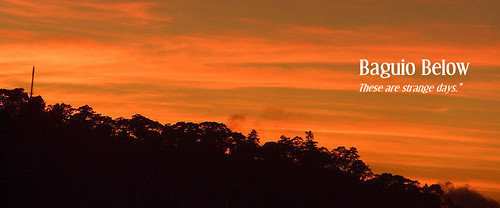Here is my copy, which I acquired from good, old Fully Booked.
In grade school, some of my friends and I would have lunch in a small wooded area behind the main building. We'd fill the air with our voices and the sounds of our play. When the afternoon bell called us back to our learning, a heavy silence would fall over the woods. There were times I'd find myself there alone, having ran back for some forgotten item or taken a shortcut to the Industrial Arts classroom. The sun would be high in the sky, the bright light casting flickering shadows of leaves on the red-brown soil. The woods felt alive but dormant, as if disturbing the quiet might stir something into waking. I would be a little scared, but curious and defiant, staring at strange, moving shadows longer than I should. The feeling of that place was real and dream-like, an overlap of worlds. And so it was that I read the The Ocean at the End of the Lane under a heady haze of remembrance.
At its core,The Ocean at the End of the Lane is an excellent horror story. The fear, cultivated and absolute, crept into everything. I was so terrified, I couldn't sleep without my back tight against the wall. The last book to affect me this way was Coraline.
The Evil Thing is cunning and amoral, latching on to people's basic tendencies for wickedness. I felt fiercely protective of the narrator as a boy although I should have had more faith in his resilience (I am generally blinded by the charms of little boys, an effect of watching my baby brother grow up). Mr. Gaiman has great respect for children: he is matter-of-fact about the existence of magic, but doesn't spare them the nightmare. He knows they can handle it better than the grown-ups.
This post took so long because, even if I badly wanted to talk about this book and how it made me feel, I didn't know how. I
The Ocean at the End of the Lane makes me want to write, and write in the best way possible. It "was written for readers," but it is also for writers. Mr. Gaiman's prose is pointed and descriptive, not a single word without function. It is a crystal, boiled down from a balanced solution of talent, skills sharpened over years of practice, and instinct. He sets the example for the Good Art he encourages us to make. In doing so, he has also shared with us something very personal. So here I am, stumbling over my words, trying to say thank you.





